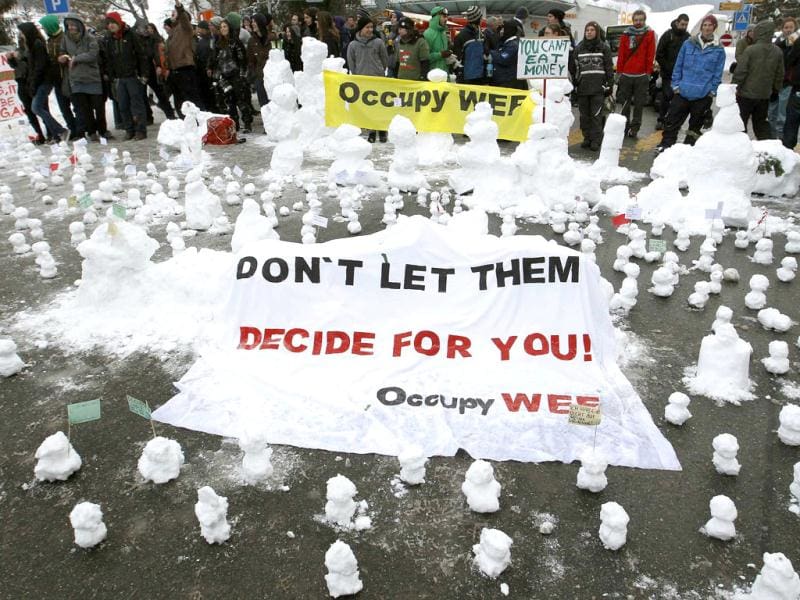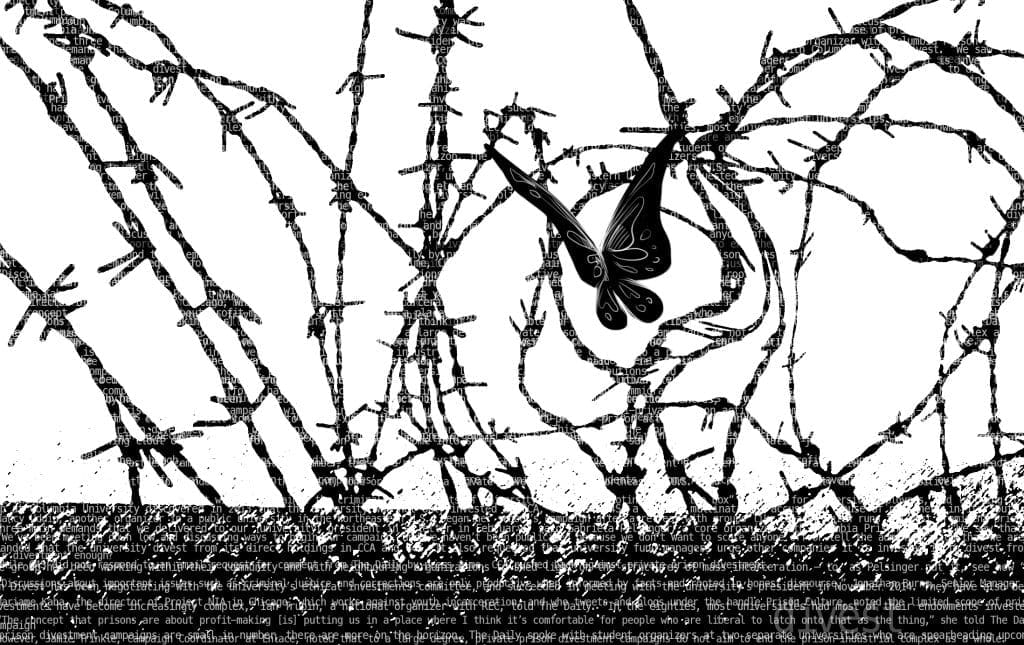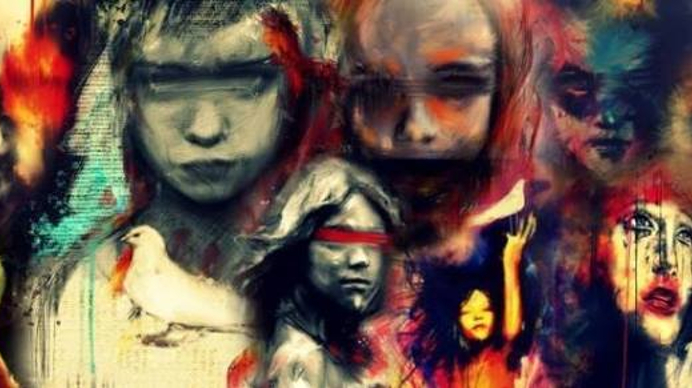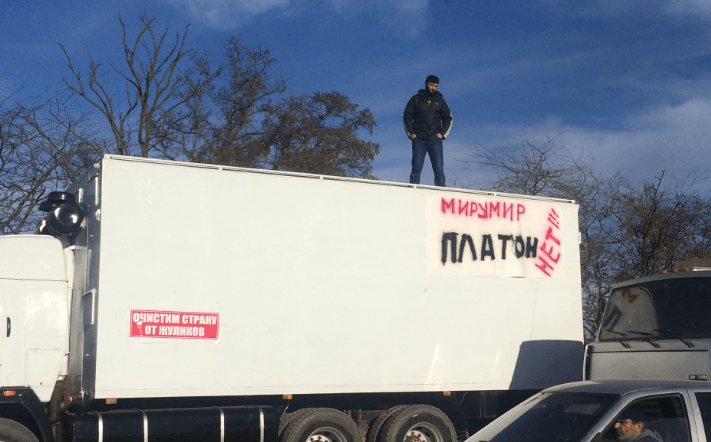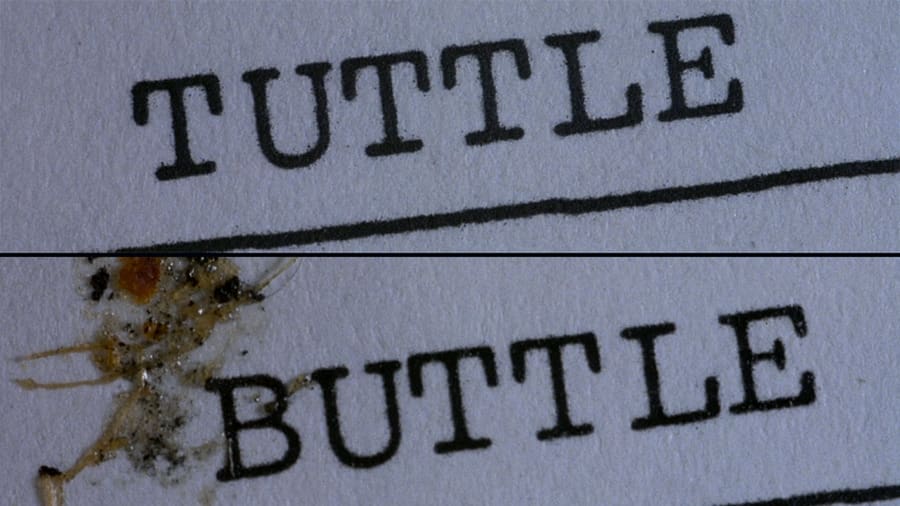Transcribed from the 18 April 2015 episode of This is Hell! Radio and printed with permission. Edited for space and readability. Listen to the whole interview:
“It’s not a cabal, and there’s not some all-powerful, Machiavellian figure directing everything. It is rather a lot of institutional structures that promote an economic system which facilitates the transfer of wealth from the poor to the rich world. It’s obscured and legitimated through massive amounts of ideology.”
Chuck Mertz: We are all scammed, duped, ripped off. The whole world. We’re all victims of the Racket. Here to reveal the Racket, how it works, and who’s running it, investigative journalist Matt Kennard returns to This is Hell! Good evening, Matt.
Matt Kennard: Good evening, how are you?
CM: Good! It’s great to have you back on the show. So this book, The Racket: A Rogue Reporter Versus the Masters of the Universe—this is going to be the question that everybody’s going to ask me: “Is this another one of those conspiracy theory books?” What makes this “racket” different from a conspiracy?
MK: Well, first of all this isn’t something that I’ve come across from a distance. I was part of the racket; I was a journalist with the Financial Times for two and a half years. I mean, I went to the Financial Times as a reporter with a critical mind; I wasn’t a neoliberal warmonger. But what I saw there confirmed many of the fears I had about who really runs our world.
At the Financial Times I had complete access to these people. I was based in Washington DC, New York and London. New York and London are the financial capitals of the world. I had access to all the top players, when I wanted, for interviews and research. They didn’t know what my politics were, but I was accruing information as I went. And I was quite conscious, while I was there, that I wanted to write about what I was seeing after I left.
The book itself is an investigative journey. It’s not just based on reporting from London and New York; it’s from what I saw reporting all around the world during that period.
So to go back to your question: conspiracy theories often come about when people are scared by the complexity of the world, so they come up with simple theories that blame one person or one cabal of people. It’s much more complicated than that. Having a systematic and structural view of how the world works doesn’t make you a conspiracy theorist if it’s based on evidence. And the book is full of evidence.
Actually, before I started at the Financial Times, I wasn’t into economic history or the world of finance at all. I wasn’t even really aware of it as a major issue of our time. I’d been politicized by the war in Iraq, which is why my first book was about the US military in Iraq and Afghanistan.
The targets of my ire for a long time were Tony Blair and George Bush, who I thought were the most powerful people in the United States and the UK. But when I started at the Financial Times I realized that there’s a whole load of silent movers who we don’t know anything about. We can’t understand what they do. And that’s purposeful—they try to make it as obscure as possible.
It’s not a cabal, and there’s not some all-powerful, Machiavellian figure directing everything. It is rather a lot of institutional structures that promote an economic system which facilitates the transfer of wealth from the poor to the rich world. It’s obscured through massive amounts of ideology. All the institutions which facilitate this massive transfer of wealth, and have done so for centuries, also have the money to pay for intelligent people to come up with theories to legitimate it.
I came up against this all the time at the Financial Times. I’d go abroad and I’d talk to heads of mining companies that were ripping off countries in Africa, for example, and they would say to me, “We’re only here because we want to help the people of South Africa! We want to bring them schools and hospitals!” And if you’re naïve, or if you’re invested in the system and it pays off to believe these theories, then you believe them.
But I had a critical mind, and I started analyzing all the ideologies I was being exposed to, and I realized they were all hot air. The only reason they exist is to legitimate this system which facilitates theft.
A good example of that is in a report that was released during the last Davos summit, which said 85 people own the same amount of wealth as the bottom half of humanity—3.5 billion people. You could fit these 85 people in a bus. They own half the world’s wealth.
We’re meant to think that’s some weird quirk of history. But it’s not. It’s the result of active policies of the United States and Europe for the last century. It’s not an accident. But our gaze is averted by this ideological pollution which is pumped into our society to stop us understanding the Racket that really rules us.
CM: So is it simply a natural process of capitalism that we end up at this point?
MK: On an abstract level I would say I am anticapitalist. But I’m not arguing that we need to build a communist utopia. What I’m arguing is that there’s a very extreme version of capitalism, often called neoliberalism, where this very strict market fundamentalist idea is being imposed all over the world, especially since the seventies.
It has done nothing of benefit for countries in the poor world. In fact, a really interesting way of understanding the Racket is to look what happens when countries try and leave it. If we look at increasingly independent countries in Latin America—Venezuela, Bolivia and Ecuador are the three examples often used—they’ve got leaders who were elected on a popular mandate and tried to extricate themselves from this vast economic web of control which has been imposed on the region. For that, they’ve been targets of massive subversion, primarily by the United States.
In the case of Venezuela: they have the second highest proven oil reserves in the world, which is a big deal, obviously, in terms of geopolitics. And ever since Hugo Chávez was elected in 1999, the United States has been very angry that there is a socialist movement sitting on top of these deposits. So they turned to a massive program of subversion, which started with the 2002 coup in Venezuela, which was briefly successful until the poor people in the barrios around Caracas came out to the presidential palace and demanded the military junta put the democratic president back.
I traveled in Bolivia as well. Evo Morales is the first indigenous leader in South America; he’s a democratic socialist, and he tried to change the coordinates of economic control in the country by kicking out the IMF and the World Bank and all these institutions which are basically set up to pull money out of Bolivia. He was, again, a target of massive subversion. In 2008 there was nearly a civil war in Bolivia when the oligarchs in the east tried to vote for autonomy; they were backed by the United States in this.
All around the world there are people—not just heads of state but activists and individuals—who are working against the Racket. They put themselves on the front line, and they get killed or put in prison. Anti-mining activists will be killed by murky forces related to mining companies. We get a very interesting view of the Racket by looking at what happens to people who try and extricate themselves from it.
CM: You mentioned the Bretton-Woods Accords that created the IMF and the World Bank in the post World War II era. You write, “Of course, it is extremely hard to escape the lock that Bretton-Woods puts on your country. One example of a leader or a movement trying to do so was Luis Ignacio Lula Da Silva, who realized early on he would have a hard time borrowing money if he embarked on his more radical ideas to combat inequality in his country. The credit lines would be pulled.
“There is now a near-absolute rule in global politics that social-democratic leaders become sellouts. Why? Because the forces of capital and its enforcer, the US, are too powerful. Lula wrote a letter to his people at the start of his tenure explaining how far his hands were tied by foreign capitalists. Brazil, in other words, was far from a sovereign country. And that was no accident.”
So they’re not selling out, they’re simply not in control. Does this alleviate the responsibility of people like Lula, or Obama, because the Bretton-Woods Accords and foreign corporations are tying their hands?
MK: No, I don’t think it does. The reason they’re in power is they’ve accepted the presuppositions of the system. I think focusing on individuals is a bit of a waste of time, to be honest, because we’re never going to know someone’s real motivations. We can’t look inside someone’s head. I don’t know if Obama became president because he is a completely Machiavellian, power-hungry individual, or if he developed a burning desire to change the world for the better when he was working with the poor in Chicago. I don’t know. I have no idea.
But I can judge his actions in power, and he’s been a complete sellout. It doesn’t absolve him of responsibility that he’s not as powerful as we think he is.
Lula’s different. I think Lula was genuinely a liberationary leader in Brazil. He’s interesting because he talked quite openly about how his hands were tied, and he didn’t go against it. It’s similar to what happened in Uruguay with Pepe Mujica, who just left, who was a former Marxist guerilla who then became president. The Western media loves to talk about him because he’s this little guy who lives on a farm and gives all his money away, but actually he’s got quite radical politics. He wasn’t able to introduce many radical reforms in Uruguay, because the penetration of these countries by the Bretton-Woods institutions is so strong that it really constrains the spectrum of what a leader can do.
“The Soviet Union was a disgraceful, disgusting regime. But during the Cold War, poor countries that didn’t want to become part of the IMF/World Bank world had another pole they could organize around.”
I was just in El Salvador, which is now run by the FMLN (the Marxist guerillas who were fighting a civil war in the eighties, in which the US backed the Salvadoran military when they were carrying out massacres against the FMLN). The FMLN are a radical Marxist peasant movement. They’re now in power. So I talked to people in the FMLN government, and they said, “We can’t do anything. We literally can’t do anything. We’ve got all this debt to Bretton-Woods. We have all this aid money that we rely on from the United States.”
Because your whole country is premised on aid money from the United States, loans from the World Bank, emergency funds from the IMF. When all these people have put you in their debt, it’s very hard to go against what they tell you to do.
I don’t think that’s an accident. I don’t think it’s a conspiracy theory to say that it’s set it up this way for a reason. The reason is control. The only countries that are going against that are places like Bolivia and Venezuela. And this is what happens: part two of my book is called Enforcement, because obviously there are flies in the ointment, places like Bolivia and Venezuela—and what do they do in that case? Usually they’ll do coups; they’ll do massive programs of subversion, and it works.
Salvador Allende in Chile was a famous example, who tried to tamper with the social order in a real way and redistribute wealth, and what did the United States do? Massive program of subversion, made him unpopular enough that some people actually supported General Pinochet. But in the end, General Pinochet overthrew him in a military coup. Seventeen years of dictatorship. He sold off the whole country to foreigners, gave money to oligarchs, and when democracy returned it was a destroyed society.
What the US likes is what they call “low-intensity democracies.” We go out every four or five years, vote for one of two factions of the same center-right business party, go home, and forget that democracy exists. And that’s what they call democracy. But when leaders are elected who start threatening to tamper with the social order, like Evo Morales did (he had a massive program of land redistribution from the oligarchs to landless peasants), that’s when democracy, as they put it, “gets out of control.”
In Washington, they even talk about it in terms of “losing.” They say, “We lost that country.” They say, “We lost Cuba in 1959.” You only lose something that you think you own. So when leaders break out and start representing their people instead of American or European corporate interests, we’ll take them out with massive programs of subversion, or whatever works.
It’s more difficult in Latin America now. That’s why Hugo Chávez survived for as long as he did, and Evo Morales is still there. Now they don’t have the excuse of the Soviet Union. That was a powerful ideological tool used during the Cold War when they overthrew all these governments (to the degree that they had to legitimate it to their people at all, because most people didn’t even know). They said, “We had to do that because the Soviet Union was in our backyard.”
They don’t have that excuse now. Still, they’ve invented other ones. In the book I talk quite extensively about the drug war. The drug war, not by coincidence, became this massive thing at the end of the Cold War. It was started in the seventies but really picked up in the nineties, because what was called the “peace dividend” didn’t really happen; military spending kept going up, and they needed new enemies to justify it. So they created this massive drug enemy in Latin America that legitimated them having military bases and a massive military presence. And that’s not because they care about drugs. The drug war is a complete hoax. It’s because they want to maintain control.
Leaders are aware of this now. One of the first things Evo Morales did in Bolivia was to kick out the US Drug Enforcement Administration, because he knew it had nothing to do with interdiction and crop destruction. It was nothing but an excuse for the US to have a massive military presence in Bolivia—and with military presence, you have control.
So what we see is a vast web of control. It’s not one institution. It’s not one person. It’s an amalgamation of different players which create a structure where it’s very difficult to move against any of them. We have the DEA, we have USAID, we have the IMF, the World Bank. There is DFID, the British aid agency. When you’re a small country, going against them is suicidal in many ways. And now, after the end of the Soviet Union, there’s not another pole that you can organize around.
The Soviet Union was a disgraceful, disgusting regime. But during the Cold War, poor countries that didn’t want to become part of the IMF/World Bank world had another pole they could organize around.
Increasingly, countries are organizing around China. When oil prices dropped recently and Venezuela was going to fall into a financial crisis, Maduro, the leader who succeeded Chávez, flew straight to Beijing very quickly and got a bailout from the Chinese. The Chinese are smart. Obviously they want Venezuela in their sphere of influence. So with the “rise of China,” we’ll probably see an increase in a sort of new Cold War in that respect, where developing countries can choose which pole they organize around.
But that hasn’t happened yet. It’s only happening now. Since the end of the Cold War there have been twenty years where all we had was resurgent capitalism backed by the United States, and it’s been very hard to break those precepts.
CM: What’s really disturbing to me is when I think about this in connection to the interviews (1, 2) that we did with Michael Glennon last year. He had a paper, that turned into a book, about the “double government.” It’s not really a shadow government; it is just that people in many agencies and bureaucracies keep their positions from administration to administration, which makes for a more or less consistent foreign policy. Our national security policy is pretty consistent because the same people are always running the show.
And then there’s the situation here with the Bretton-Woods Accords. It would seem that there are countries around the world that lack sovereignty because of the IMF and the World Bank. So I’m starting to think that governments aren’t in control of countries, and people aren’t in control of governments. Is that the bigger issue that you found?
MK: The US government has a program called Continuity of Government (COG)—it’s a program that they have in case of nuclear war and other massive emergencies, where government functions can keep running. And more ideological people within the US government and economic institutions have a kind COG program for the whole world, as you describe.
All these ideologies tell us colonialism finished after the Second World War, when the British Empire was basically finished, and we had all these liberation movements around the developing world. That’s basically rubbish. Imperialism never finished. We would have to believe in fairies to believe it has.
“There’s a debate on the Left about whether we should go into these institutions and change them from the inside. I think we need to ignore them. We need to work outside the system, and we’ve got many more materials and many more methods of doing that, so we need to take advantage of it and build up our own institutions—basically to escape.”
What it has done is change its face. The United States took over from the British as the major power in the world, and they run an informal empire. They don’t have garrisons of troops in foreign countries, but they have these institutions like the World Bank and the IMF, which are basically under their control, and which go into countries and tell them exactly how to run their economies, for the interests of American corporations and global capital. It’s all given lovely-sounding theories about why this will bring prosperity to the developing world. But it never does, obviously. It’s just another form of imperialism.
That’s going to happen as long as there’s a power imbalance. I am a realist in terms of international relations, in that I do believe that powerful states will try and dominate less powerful states. What annoys me is that no one will admit it. Obviously I think this system of domination in itself is disgraceful. But it would be slightly easier to take if the people who did it at least said, “Look, we’re modern-day imperialists and we want to take your resources.” Instead we’re told they want to spread freedom and democracy and all this rubbish.
Part of the way that we get out of the Racket and escape this system is education. There’s a lot of pollution to clear away to see how the world really works, but you can do it. They make it very difficult to do on purpose, but you can do it, and one of the major ways—especially within the United States and Britain—is a massive program of education whereby people start to understand that they’re sitting atop a system which is a massive form of imperialism. It’s important.
It’s funny going around the world and talking to the victims of the Racket, because they’re much more aware of how the system works, because they haven’t been through the indoctrination that we have (also, they’re on the front lines, so they can see the DEA killing people in Honduras, for example, or they see the US-supported Honduran military killing dissidents). People are much less susceptible to the fairy tales that we tell ourselves when they’re seeing the results of it on the front lines, which we never see.
I think it’s very interesting going to the developing world, and the poor world, because you see a much less indoctrinated populace. Now, I don’t think people are bad in the United States and Britain. I don’t think they vote for Racket leaders because they think they’re voting for Racket leaders. They’re victims as well, victims of massive systems of indoctrination.
This indoctrination becomes recognizable as one ‘climbs.’ I went to university in Leeds, not an elite university at all. I became politicized there because there were massive debates. There was a really wide spectrum of debate; you could get many different opinions on any issue. And then as I started moving up the hierarchy of our society, I started to see the spectrum closing. People’s minds became more and more closed.
I did a master’s at Columbia University in journalism, which is apparently the best of its kind in the world. The spectrum of debate there was really, really small. Because the higher you go up the chain, the more indoctrinated you’ve got to be, because you’re going to be the next leaders. The reason everyone was so indoctrinated at Columbia University is because that’s the next generation of corporate journalists in the United States. You can’t have corporate journalists thinking crazy things about the world by looking at things rationally!
If you go talk to poor farmers in Tanzania, which I did a couple of weeks ago, they haven’t even been to secondary school. All their impressions of the world are based on what they see with their eyes, and there’s much less space for them to have been lied to. It’s much easier to talk to these people on the level and get rational analysis out of them, because they haven’t been to these elite institutions.
It’s how all power systems work. Power systems work by replicating themselves exactly as they are. They don’t work by promoting dissidents or people who think differently than everyone else. What they do is eject those people, and that’s how they keep running year on year.
One of the crystallizing moments for me, when I was looking at what I call the Racket, this massive economic system of control (which is also backed by military control if countries get out of line) was in Haiti. I went there a year and a half after the earthquake. The government was destroyed. Most of the government ministries had actually physically collapsed. The presidential palace was a wreck. 300,000 people dead, millions living in tents around the city. It was like the apocalypse. I couldn’t believe it. I couldn’t believe what I was seeing with my eyes.
But I was there with the Financial Times. I was taken around the country by the World Bank and the IMF, and I saw up close how powerful these institutions are. Although they spew endless rhetoric that “the reconstruction is Haitian-led,” I didn’t see one Haitian person, any time I was taken around by the IMF or the World Bank. That’s why I call the first chapter Creating a Modern-Day Slave State—because they’re not imposing a program which is to the benefit of the Haitian people. They’re imposing a program which is to the benefit of the Racket.
When you see the power of these people up close, you realize it’s very, very hard to go up against it. And that’s part of how the system works. If you’re the president of a small African country, just been elected, and they ask you to go to your first meetings with the World Bank and the IMF, imagine how intimidating that is. You’ve probably got a cabinet of twelve people who haven’t got that much experience, and then you get these twenty people from the World Bank, IMF, USAID, who come in and say, “Congratulations, Mr. President! Now what you’ve got to do is this.”
Now, this person who has no governmental experience, has no real power—it’s very, very difficult, psychologically, for him to go against that, and to think that they haven’t got his best interests at heart. That’s how the whole system is set up.
A good example of that was after the end of apartheid in South Africa, when these institutions went straight in. There’s a lot of debate in South Africa about why Mandela “sold out,” or where he didn’t. But they basically adopted exactly the program they were told to by the World Bank and the IMF, and in fact inequality and poverty is worse now in South Africa than it was under apartheid.
The system works by enforcing a very strict and irrational economic model on people and telling them that it’s for their own benefit. That’s why it’s so hard to fight. Because the ideology is so strong, and backed by so many “intelligent” people, that to go against it, you need to be very powerful psychologically. And to stand up as a country, you need to have a mobilized populace.
CM: One thing I keep hearing people say is that the powers that be are being challenged now due to online journalism, due to the fact that there is alternative media out there, the fact that the dominant media (which you point out is one of the key components of indoctrination) may be weakening because of the amount of alternative media online.
How much control is the Racket losing now that the dominant media has online competition?
MK: The internet has managed to wrench control of the intellectual means of production away from newspapers, and massively democratized the media. There are many, many more ways around establishment institutions now, with the advent of the internet. There are now loads of different independent media organizations happening all over the world. I think that is one place where there really is optimism.
There’s a kind of revolution in that respect. But the Racket will naturally want to dampen that kind of free thinking and that kind of free press. The last thing they want is a free press which exposes them. They want what people think is a free press, which supports them.
I also think that in the United States people are becoming increasingly wary of the two party system, and I think there will be a fracturing of the political process which mirrors what you’re talking about in the media, where the traditional system is breaking down. We’ve seen this in the UK and all over Europe. I think that’s where the hope is, and I think that as engaged citizens, we need to understand that Democrats and Republicans (or in the UK, Labour and Tory) are the old world. I don’t think that we need to deal with these people.
There’s a debate on the Left about whether we should go into these institutions and change them from the inside. I think we need to ignore them now. We need to work outside the system, and we’ve got many more materials and many more methods of doing it now, so we need to take advantage of it and build up our own institutions, build new parties, build new media outlets. Basically to escape.
Rather than wanting to change these old-world institutions, we should create a new world where people can just ignore the establishment and the Racket.
CM: Always great having you on, Matt. Thank you so much for being back on the show.
MK: Thanks for having me. It’s always great to be on.

